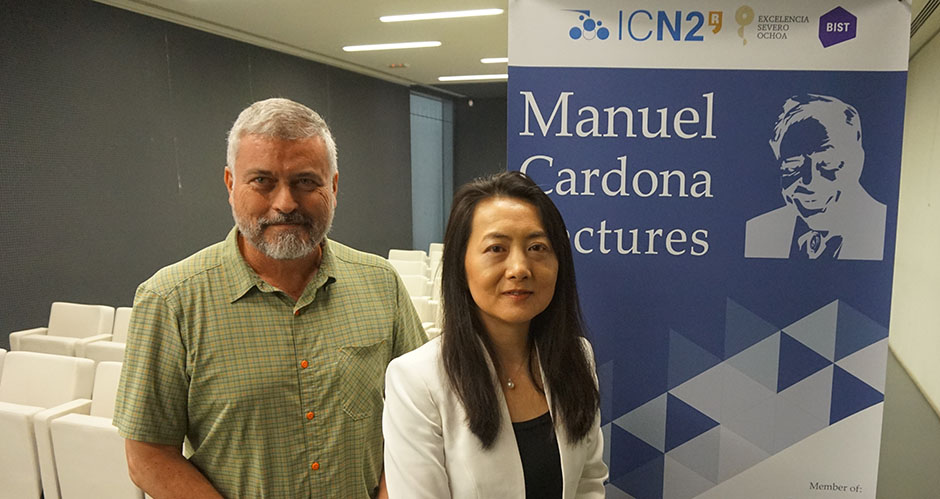Prof. Yang Shao-Horn, Professor of Energy at the Massachusetts Institute of Technology and one of The World’s Most Influential Scientific Minds, according to Thomson Reuters, gave a talk on electrochemical energy storage on June 17 at the ICN2. The event was organized as part of the Manuel Cardona Lecture series.

The development of new technologies for sustainable fuels and energy storage is one of the many key objectives of the research carried out at the ICN2. Electrochemistry, which is largely used today in this field, can provide new solutions for storage and conversion; thus, big effort is put into studying nanomaterials that can serve to this purpose and the characteristics that determine their behaviors.
Prof. Yang Shao-Horn, who is W.M. Keck Professor of Energy at the Massachusetts Institute of Technology (MIT) and an expert in this field, was invited by Prof. Pedro Gómez Romero of the ICN2 Novel Energy-Oriented Materials group to give a talk on electrochemical energy storage for decarbonization. With more than 230 papers published in scientific journals, Prof Shao-Horn is included in Thomson Reuters’ list of “The World’s Most Influential Scientific Minds”. This event was held on June 17, within the framework of the Manuel Cardona Lecture series, which offers to the researchers within our community and beyond additional opportunities to learn about new studies and advances in nano-related topics.
In front of a packed lecture room, Prof. Shao-Horn discussed the challenges that we are facing in terms of energy sustainability, resource consumption and efficiency of our storage systems. After providing an overview of current studies on materials for electrochemical energy storage and conversion, she discussed some of the open issues and her research lines.
Her studies focus in particular on improving the performance and efficiency of clean energy storage based on chemical transformation and on applying fundamental understanding in reaction mechanisms to design long-lived and safer lithium-ion batteries.
During the lecture, she highlighted the importance of developing alternative ways to generate and manage energy with the aim of decarbonizing our society, and reminded how socio-political consequences of our technological choices should be taken into account: the cobalt mining issue, in particular, is a very serious concern.
We extended the discussion on these subjects in an informal interview, which we had the pleasure to do after the lecture.
The recording of the lecture and of the interview will be available and shared here soon.

